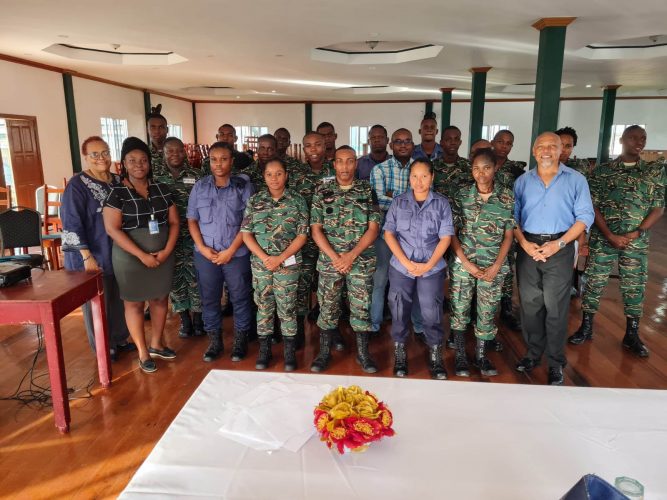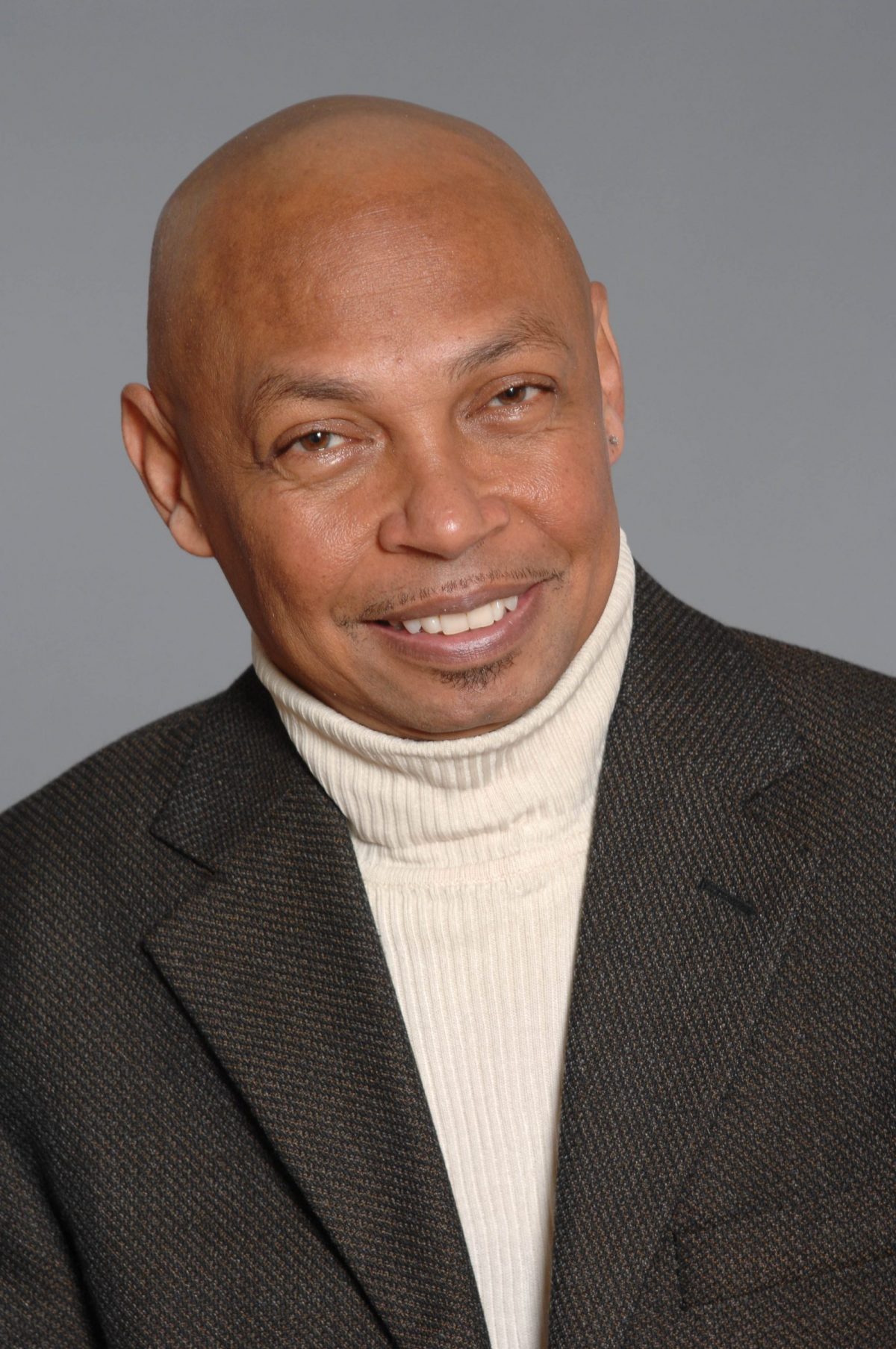Feeling as if it was all over for him, Antoine Craigwell said he was seconds away from throwing himself onto a train’s track when he had some flashbacks about his mother. He pulled back and life has never been the same since. Not only has he been helping others with their mental health struggles, but he has been specific in targeting gay black men in the US.
“In 1999, after a series of things happened in my life, including my sister dying; including experiencing domestic violence; including losing my job and feeling a sense of not belonging, I attempted to kill myself. I stood at the edge of a subway platform in New York City and was going to jump in front of a train. But then I remembered my mother and I stepped back from the edge of the platform,” Craigwell said candidly in an interview with this newspaper.

It was around that point as well, he said, that he realised there weren’t enough resources for him after which he “struggled through several jobs”. Finally, around 2009, he decided to do something for gay black men because he found no resources to address this group of society’s mental health.
A former journalist, Craigwell’s work since has also focused on gay black men’s access to HIV treatment and today he provides training in cultural awareness and sensitivity, and mental health and HIV for the Washington DC Court system. He also lectures in these subjects to medical students attending Touro College of Osteopathy.
A certified National Mental Health First Aid Instructor, Craigwell is the founder of DBGM Inc, a non-profit organisation committed to raising awareness of the underlying factors contributing to depression and suicidal ideation.
Craigwell does not identify as gay or bisexual. According to him, sexuality is fluid and he is simply a man; he could be static or fluid at any given time. He has been married twice to women, but he has had relations with both men and women, which started since he was a young man in Guyana.
In 2009, he also started what he described as community discussion forums, which saw him moving through New York and other parts of the US and having discussions with mental health professionals, and religious leaders among others, about mental health, depression and suicide. He has conducted interviews with gay men, chronicling their experiences with the intention of writing a book, but he recognised that people respond better to a video than a book and had some of the participants talk on camera. He then produced the documentary “You Are NotAlone” (www.yana-thefilm.com).
Issues raised were acceptance of self and by others, the role that religion and churches play in perpetuating homophobia and stigma and shame and discrimination, contracting HIV and the shame that surrounds that, bullying and cyberbullying, sexual abuse and the trauma that comes with this and about growing old as a gay black man.
“Very often there are no resources for older black gay men often because of [their] shrunken social networks, compromised health and [they] may be struggling with long-term mental issues that have never been resolved. Many black older gay men feel marginalised and isolated,” Craigwell expounded.
The factors listed were the pillars on which he started DBGM Inc in 2013, with particular focus on mental health for black gay men to prevent their suicide. During his work he has recognised that there is a high rate of HIV among black gay men and even though there is treatment, they are not taking it as they should because of, among other things, mistrust.
“There is the continuing stigma and discrimination around taking treatment. There is the mistrust of taking treatment…,” he said referencing the Tuskegee Study of Untreated Syphilis in the Negro Male which was conducted between 1932 and 1972 by the United States Public Health Service and the Centers for Disease Control and Prevention on a group of nearly 400 African Americans. It is often referred to as the Tuskegee experiment. The men were not informed of the nature of the experiment, and more than 100 died as a result.
That mistrust, he said, was also evident during the COVID-19 pandemic, which saw higher rates of the disease in black communities. Even though there were mobile vans, he said that the members of the communities were not going to get tested because of that mistrust. There was also a lot of misinformation that contributed to the lack of trust.
In 2014, Craigwell also launched a conference that focuses on mental health for LGBTQ+ people of colour as he believed that black people were not being treated properly as it relates to mental health.
“My work is now about raising awareness and commitment to ensuring that black people and black gay men and by extension LGBTQ+ people of colour get access to mental health care. That they are aware of what mental health is,” he said, adding that this year they launched what is known as an ancestral institute. This institute is intended to bridge contemporary mental health with ancestral rights and healing practices.
Acceptance?
Asked at what point he accepted that he was gay, Craigwell stated that he does not necessarily identify as being gay, adding, “if you think that I am gay that’s on you. I never tell anybody that I am gay.
“I live my life as openly and as comfortably as I am so I don’t walk around with a label saying I am gay… I don’t feel I have to announce it. I am comfortable with who I am…”
He quickly added that he has no issue with people identifying as gay or anything else since identification is crucial to whom one is and to one’s mental health.
Asked about those close to him accepting him for who he is, Craigwell said, “I struggled with acceptance for many years, but I have since arrived at a place where I don’t give a [expletive] what anybody thinks about me. As long as I am comfortable with me, and I accept me, then I don’t really care about what you think or what you don’t think. It is about me accepting me and finding my place in this world and I am comfortable where I am now.”
For him it was not accepting but rather realising who he was and his comfort level with himself as he recognised that if he chose to fight against who he was then he would be hurting himself and others around him.
Craigwell, who left Guyana some 30 years ago, said as a young man in Georgetown he had several relationships with people of both sexes, but he knew to be discreet because the society and culture here then did not accept someone who was involved in a same sex relationship.
Of course, there were other people who were having such relationships discreetly and on his several trips back to Guyana he has become more aware of the prevalence of such relations but there is still much discretion. He said he was proud that an organisation such as the Society Against Sexual Orientation Discrimination (SASOD) could have been founded in Guyana, because when he lived here that was unthinkable; people were beaten for being in same sex relationships.
He recalled though that there was a report in the 1950s of a wedding between two men in Albouystown where one wore a bridal dress and they had a procession down the street. He also attended an Indian funeral in Corriverton where the deceased might have identified as a cross dresser, as it was individuals in such attire who led the procession from the house to the burial ground.
He noted that in Guyanese culture and society there are pockets of people who are comfortable with who they are. However, one of the things that contribute to stigma and discrimination not just of sexual orientation but mental health is when people don’t know and they are influenced by others.
Grew up in asylum
Craigwell said he “grew up in the mental asylum in New Amsterdam’’, since his mother worked there as a nurse. Many of his boyhood days were spent running around the halls. His first sets of inoculation were received at that very institution.
“So in a sense mental health and mental issues have always been a part of my life. In the most recent years I have discovered in my family that there was significant trauma but there has also been significant cases of mental illness in my family. And I am looking and doing work right now to identify the stories in my family that so far I have found out I have been able to understand a whole lot about myself,” Craigwell shared.
In Guyana, Craigwell said, there is still significant shame and stigma surrounding mental illness and for him over the years the government allowed treatment for mental health to decline rapidly which included the asylum in New Amsterdam becoming decrepit.
Here he has been working to raise awareness, to have people being able to have a conversation about mental health and mental illness, to bring it out of the shadows and break down the shame and stigma. Given the opportunity, Craigwell said, he would also want to do some work on LGBTQ+ mental health awareness because they are struggling with mental health and gender identity and mental illness can be a combination much more destructive and suicidality is likely. He has presented twice at the Guyana Wellbeing Conference on mental health and aspects that surround stress, depression and suicidality and how to intervene to prevent someone from killing themselves.
However, Craigwell said he had reached out to the Ministry of Health’s mental health unit with the view of conducting training throughout the country on mental health issue. He has not have a feedback from the unit. He believes that Guyanese have a fixation on academic qualification and so people who may have on the ground knowledge on issues are disregarded even though there is need for all to play a part of addressing the critical issue of mental health, which has been ignored for many years.
Over the years, Craigwell, as a journalist, has written for several US publications. He is a graduate of the Bernard Baruch College of the City University of New York, and in 2008 he earned awards from the New York Association of Black Journalists in the Public Policy category for a series on Rikers Island. Recently, he completed and provided an online self-study course for Columbia University in New York City. He was featured in several magazines, including, “Depression is Teaming up with HIV to Kill Black Gay Men. Can we stop it?” published in Plus Magazine, February 2016; a chapter in “Headcase – an Anthology of LGBTQ Writers and Artists on Mental Health and Wellness”, published by Oxford University Press, Feb 2019; and in the NY Governor’s Suicide Prevention Report “Considerations and Contexts for Treatment – the Whole Person”, April 2019.






